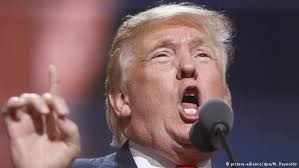Washington, Nov 13: In line with his hardline immigration stance, President-elect Donald Trump has vowed to immediately deport up to three million undocumented immigrants, saying "we are getting them out of our country or we are going to incarcerate".
 "What we are going to do is get the people that are criminal and have criminal records, gang members, drug dealers, where a lot of these people, probably two million, it could be even three million, we are getting them out of our country or we are going to incarcerate," Trump told CBS News.
"What we are going to do is get the people that are criminal and have criminal records, gang members, drug dealers, where a lot of these people, probably two million, it could be even three million, we are getting them out of our country or we are going to incarcerate," Trump told CBS News.
"But we're getting them out of our country, they're here illegally," the 70-year-old business tycoon-turned politician said in an excerpt released ahead of broadcast of the interview.
However, House Speaker and top Republican leader Paul Ryan, striking a different tone, said that despite Trump's campaign rhetoric, lawmakers are not prepared to form a deportation force to round-up and deport undocumented immigrants.
"We are not planning on erecting a deportation force. Donald Trump's not planning on that," Ryan told CNN.
"I think we should put people's minds at ease: That is not what our focus is. That is not what we're focused on. We're focused on securing the border. We think that's first and foremost, before we get into any other immigration issue, we've got to know who's coming and going into the country -- we've got to secure the border," he added.
During the election campaign, Trump had warned that those countries which do not accept these illegal immigrants, he would enforce the legal provision of stopping of issuing of visas to the people of those countries.
There are an estimated 11 million documented immigrants in the country. Several hundred thousand are believed to be Indian-Americans.
The President-elect said he would take a call on the fate of the rest of the illegal immigrants, after the border is secured. "After the border is secure and after everything gets normalised, we're going to make a determination on the people that they're talking about who are terrific people, they're terrific people but we are gonna make a determination at that," Trump said.
"But before we make that determination...it's very important, we are going to secure our border," he said in response to a question.
Trump insisted that he is determined to fulfill another campaign promise of building a wall along the Mexican border. "For certain areas I would, but certain areas, a wall is more appropriate," he said. "I'm very good at this, it's called construction," Trump said.
Since Trump's election on Tuesday night, the realities of actually building that wall have begun to set in and the Mexican government has publicly reminded him that Mexico will not pay for the wall.
Asked about the wall, Trump transition co-chair Newt Gingrich said the wall was "a great campaign device".
During his election campaign, Trump articulated a strong and tough immigration policy, which was quite opposite to that of his Democratic rival Hillary Clinton, which was based on compassion and providing a pathway to nearly 11 million illegal immigrants.





Comments
Add new comment